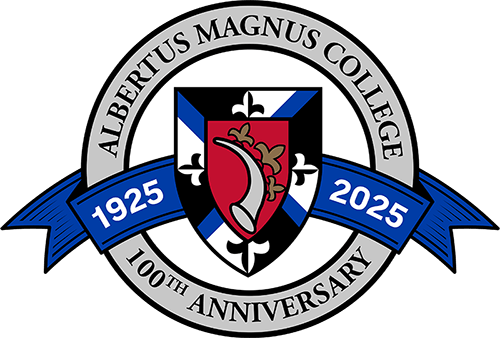Albertus Magnus College
Certified Nursing Assistant
Train for a CNA Certification. Build a Career of Care.
Our Certified Nurse Assistant (CNA) Training Program is an 8-week, 110-hour course designed to fit into your busy life while preparing you for meaningful work in healthcare. You’ll gain 70 hours of classroom instruction plus 40 hours of supervised clinical practice — meeting Connecticut’s state requirements and positioning you to sit for the state certification exam.
If you are over the age of 18, you can enroll in our CNA course. Receive training, materials, testing, and guaranteed full-time job placement with one of our partner companies after earning your CNA license.

Through Good Jobs Challenge, this program is being offered FREE of charge. Request more information to learn more.
This project is being supported, in whole or in part, by federal award number ED22HDQ3070186, awarded to the State of Connecticut Office of Workforce Strategy by the U.S. Economic Development Administration.
Certified Nurse Assistant Experience
Here, education is purposeful, personal, and transformative. Whether you’re starting fresh or building on past experience, Albertus gives you the confidence, skills, and community you need to thrive
Certified Nursing Assistant Curriculum
Every assignment, every clinical hour, and every step brings you closer to a career of service — one that makes a difference for patients, families, and your own future.
Upon successful completion of the Certified Nurse Assistant Training program, students will be able to:
- Demonstrate effective communication and interpersonal skills to support residents' emotional, psychological, and social well-being, including the appropriate use of communication devices, therapeutic techniques, and professional documentation.
- Apply principles of infection control and safety, including proper hand hygiene, use of personal protective equipment (PPE), and adherence to standard precautions, while maintaining a safe environment for residents and staff.
- Perform fundamental nursing skills, such as measuring and recording vital signs, assisting with activities of daily living (ADLs), and recognizing and reporting changes in resident conditions.
- Deliver respectful and person-centered personal care, including hygiene, grooming, nutrition, hydration, toileting, skin care, and mobility support, in alignment with individual resident needs and dignity.
- Support residents with cognitive impairments and mental health conditions through behavioral interventions, environmental modifications, and appropriate communication to promote safety, comfort, and engagement.
- Provide basic restorative services that encourage resident independence, including assistance with mobility, range-of-motion exercises, use of assistive devices, and participation in self-care.
- Advocate for and uphold residents’ rights, including the right to privacy, dignity, informed decision making, and freedom from abuse or neglect, while adhering to legal and ethical standards of care.


